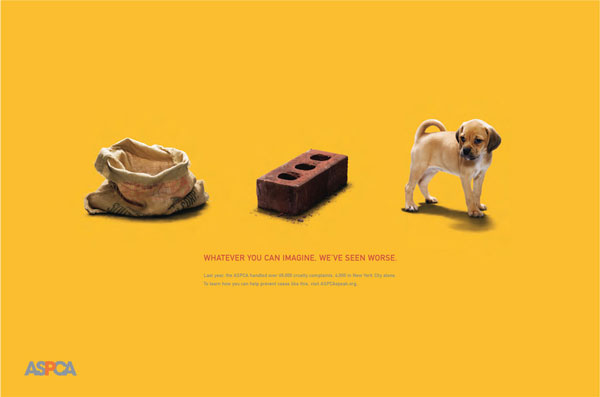Why Your Marketing Should Hit a Nerve
Aim for emotions with marketing.

Neuroscientists have determined that the human brain is incapable of making a rational choice without first having an emotional response.
It’s called dual processing, and it means we can’t make even a simple decision between two relatively equal choices without feeling something first.
Android vs. iPhone
It’s like choosing between Android or iPhone—either way you’ll have a smart phone that’s more than capable to perform all the tasks you need. But if one brand makes you feel something more than the other brand, then the decision becomes easy for your brain.
Making your customers feel something is a key part to effective marketing. It builds meaningful connection and turns customers into brand advocates.
What do you share?
We know this first hand. Think about what you share on Facebook. For most people, it’s something that makes you laugh, cry, or feel angry. In fact, a research study at the University of Pennsylvania found that the most shared content is the content with strong emotional undertones.
Using emotions to drive action
Here’s an example of an emotional ad created by The American Society for the Prevention of Cruelty to Animals (ASPCA).

A series of these ads were used to bring awareness to animal neglect and cruelty, and then to drive people to a website where they could take action to do something about it. This emotionally charged ad turned out to be extremely effective. The site generated more than 7% of visitors registering and converting to a membership with the organization. That’s real results caused by customers having an emotional connection that impassioned them to take action.
Emotional connections in B-to-B
Consumer brands have understood the power of emotional connections for a long time, but most B-to-B brands have assumed that to reach business decision makers you need to provide a rational framework that is devoid of emotion. This assumption couldn’t be more wrong.
In fact, a study conducted by Google uncovered that business buyers’ emotional connections to brands actually surpassed those of consumer brands. The consumer baseline showed 10% – 40% of consumers have emotional tie to a brand, whereas the majority of business-to-business brands surpassed the 50% mark for emotional connections. That means on average, business buyers are significantly more emotionally connected to their vendors and service providers than consumers.
Using emotions to build your brand
Here’s an example of a b-to-b brand that uses emotions to connect business buyers with their products.
Volvo has done a series of these ads because they have been so successful at generating brand awareness and differentiating them from their competitors. This particular ad has had more than 1.2 million views. Another popular ad in this series, called the Splits, has been seen by more than 81 million people around the globe. That’s impressive for a b-to-b marketing campaign.
Where to start
The most effective marketing campaigns have never been about a product or a service. They have always been about an experience. A way of life. An emotional connection the buyer has with your brand.
If you’re ready to use emotions with your brand, start by figuring out what about your brand makes people cry, scream, or laugh. Then think about how can you use humor, real stories, and memorable experiences to create an emotional response.
Once you figure out your emotional connection to your customers, you’ll do more than just hit a nerve—you’ll take your marketing to a whole new level.
Animal Instincts: A Branding Exercise
If your brand were an animal, what would it be?
Connect the Dots to Connect with Customers
A checklist for customer touchpoints.
What is Good Content?
A checklist to help you create content that will make your customers take notice.



